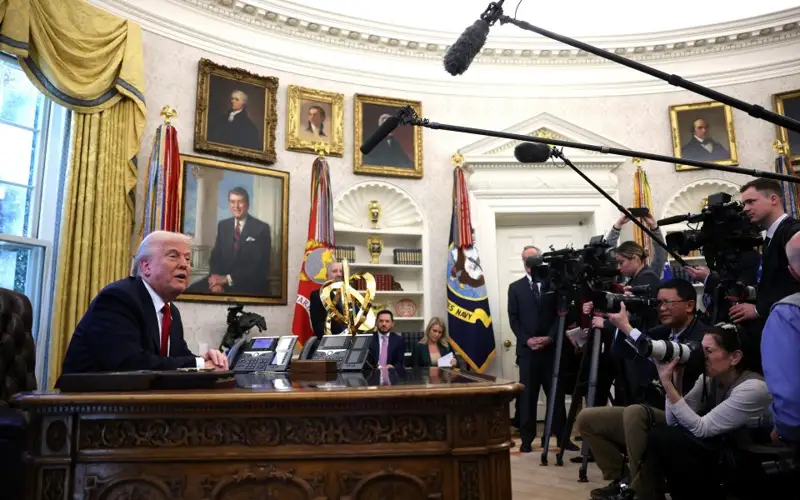Trump's 25% auto tariff to take effect April 3 with no exemptions
U.S. President Donald Trump said Wednesday he will start imposing next week an additional 25 percent tariff on all automobiles made outside his country, not exempting Japan or any other trading partner from the latest measure that could disrupt supply chains and dent economic growth globally, Kyodo reports.

The White House said the higher tariff, targeting all types of imported passenger vehicles and light trucks, will take effect on April 3. The same rate of import tax will be applied to certain auto components, including engines, transmissions and powertrain parts.
"We're going to charge countries for doing business in our country and taking our jobs, taking our wealth, taking a lot of things," Trump told reporters in the Oval Office. "They've taken so much out of our country, friend and foe alike. And frankly, friend has been oftentimes much worse than foe."
Trump said he will keep the tariff, up from the current 2.5 percent for passenger vehicles, for the length of his term in an attempt to revitalize domestic manufacturing, attract more investment into the United States and add what he claims will be more than $100 billion of annual tax revenue.
"I think our automobile business will flourish like it's never flourished before," he said.
A White House official said the tariff increase means the new tax will be 27.5 percent on passenger vehicles and 50 percent on light trucks. As for key auto components, the proclamation signed by Trump granted up to a one-month reprieve until May 3.
Trump's latest trade action could have a considerable impact on Japanese, German, South Korean and other foreign carmakers, as well as their American rivals, who also produce a significant percentage of their vehicles outside the United States and procure parts from around the world.
Due to the complex supply chains in the auto industry, involving numerous suppliers, and the requirement for manufacturers to make huge investments in technology and plants before they roll out new models, it is not a quick or easy process to relocate car production to new lines in the United States, as desired by Trump.
Additionally, many mainstream economists have warned that higher tariffs will likely result in increased costs not only for manufacturers but also for consumers.
Trump's auto tariff announcement came before he plans to unleash broader reciprocal tariffs, targeting goods from countries around the world with matching duties, on April 2.
He labels that date as "liberation day," repeatedly claiming that the United States has been "ripped off" by its allies and adversaries for many years.
Since returning to the White House for a nonconsecutive second presidency about two months ago, Trump has announced various types of tariffs.
They include 20 percent additional duties on goods from China and 25 percent levies on all steel and aluminum imports.
The Trump administration's 25 percent tariffs on imports from Canada and Mexico, announced despite the North American free trade pact, briefly took effect in early March, but are now paused until April 2.
As stated previously, Canada initiated a WTO complaint regarding U.S. steel and aluminum tariffs.
